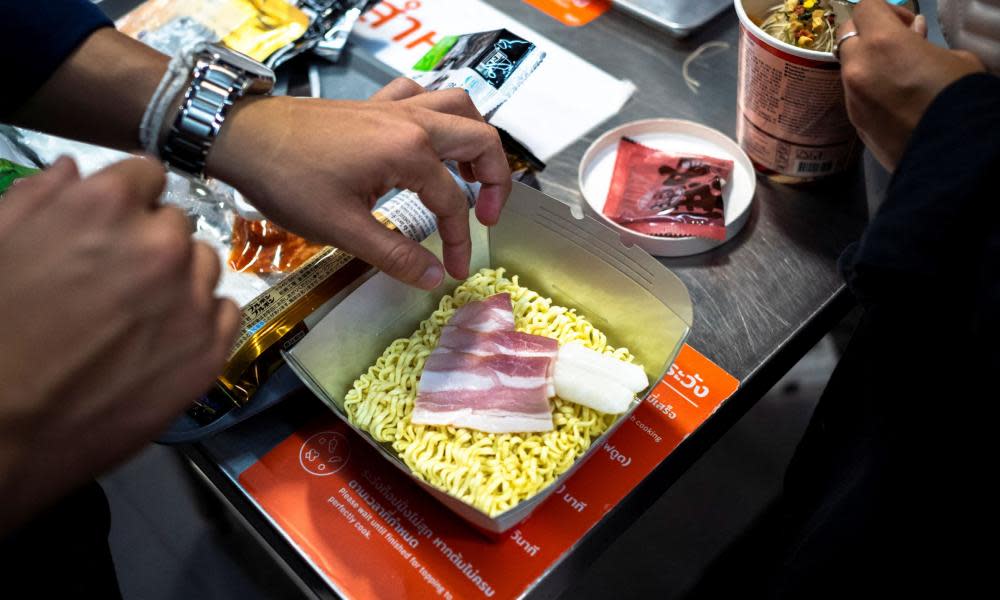Thai instant noodle makers seek government approval for first price hike in 14 years

Five major producers of instant noodles have urged the Thai government to allow them to increase their prices within a week, warning of soaring production costs affecting one of the country’s most popular grocery items.
The war in Ukraine, as well as droughts and floods over the past year, have caused the cost of wheat, energy and transport costs to rise sharply, affecting noodle prices across Asia.
In Thailand - where inflation rate reached 7.61% in July, down slightly on a 14-year high the previous month – the government imposes price controls on certain essential goods in an effort to relieve pressure on consumers. Price caps are placed on items such as eggs, cooking oil as well as noodles – which are favoured by many as a cheap and convenient meal - as well as construction materials.
Related: Ramen a leg: noodle prices heat up as wheat supply goes to pot
The manufacturers of Mama, Wai Wai, Yum Yum, Nissin and Suesat instant noodles have warned that the current price cap on their products is unsustainable, however. In a joint letter submitted to the government this week, companies asked for the price to rise from 6 (£0.14) to 8 baht (£0.19). It would be the first increase in the retail price of the noodles since 2008.
Thai Food Products Factory, the manufacturer of Wai Wai has claimed that some products were being sold at a loss, and that it would reduce its sales in Thailand in favour of overseas markets, unless prices were increased. A representative was not immediately availabe for comment on Wednesday.
Manufacturers say their production costs have risen sharply due to Russia’s invasion of Ukraine, which has pushed up the cost of wheat flour and oil.
The government is considering their request, though commerce minister Jurin Laksanawisit told Thai media he believed an increase to 8 baht was too high and that this would place too great a strain on consumers.
A decision would be made by the Department of Internal Trade Department, he added. “I think they are considering all the costs now. If they really need to change the price, it must follow the real [production] cost,” he said. If the production costs subsequently fall, so too should retail prices, he added.
Noodle prices have already risen elsewhere in Asia, including in Japan and South Korea, while estimates have suggested the cost of wheat could rise 30% this year in China.


